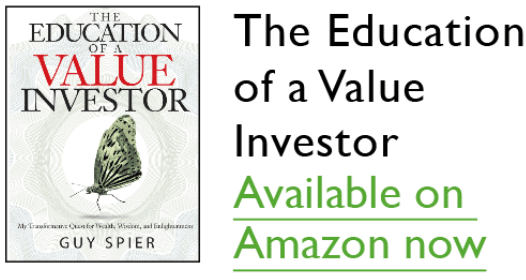What the new science of complexity teaches us about risk, and how we should be investing.
As an investor, should I be pessimistic, or optimistic about the future? And should I be aggressive, or defensive in my investing posture?
In terms of economic history, we stand in the midst of one of the most dynamic and uplifting periods of economic history. Never have so many people improved their lives by so much – whether it is the BRIC (Brazil, Russia, India and China) economies where millions of people each year are commencing urban, consumer lifestyles, or in cities like New York, London and Shanghai and Los Angeles, where the super-rich, through industries such as private equity, hedge funds, natural resources or the media are becoming ever more wealthy.
Moreover the world is not just getting wealthier. Opportunity seems to be growing at an even faster pace. Whether it is the internet boom with Web 2.0, the growth of business process outsourcing in India, or on-going manufacturing strides in China.
Why then, do we face so much uncertainty? And why does the global economy seem to continue to teeter on an edge? Why does it seem (and the newspapers continue to remind us) of the many ways in which all of this could go horribly wrong? Will defaults in the US sub-prime mortgage sector spread? Will the United States reach a “soft landing” with its twin trade and budget deficits? Will China’s governance system be capable of adapting and responding to the enormous political and economic changes taking place? Or could all of these looming dangers combine in some way to wreak some kind of awful economic devastation?
And even if we ignore the economy for a moment, it has become increasingly apparent that natural disasters are having more random and devastating effects, even when they occur in seemingly wealthy countries that are supposed to have better capabilities to respond. Only over the last few years, a power outage took out the whole of the eastern seaboard of the United States, and two hurricanes wreaked more damage than the attacks of 9/11. As I write, flooding is causing as much as GBP 3 billion or more of damage in the UK.
Whereas traditional economics has left us stumped with inadequate tools to understand these phenomena, the new science of complexity enables us to take a new and much more sanguine view. It turns out that much of life on our planet happens at a critical boundary just before a dynamic system becomes chaotic.
It is now a couple of decades since that such systems have been studied, and a little has been learned about their common properties with some subtle, but important – perhaps even profound implications for our understanding of the global economy.
The most important implication for investors is that “distributions have fat tails”. Traditional finance teaches us that, based on observations to date, the probability of truly massive change is so small that it can safely be ignored. Complexity theory teaches that probability of unexpected and bizarre events is often small enough that most people are willing to forget about them, they never so small that they can be safely ignored.
A second implication is the search for a potential antidote to this uncertainty is futile, because they are built into the nature of the system.
The practical implications of this are simple, and hark back to tried and tested, age-old wisdom: The right way to go about investing is to expect, and count on the best, but to be prepared to endure the worst.
It is not enough to set up a portfolio to withstand a100 year, or even a 500 year storm because no amount of financial, statistical, or any other kind of analysis will tell is with certainty that such a storm will not happen tomorrow.
We should invest, expecting the best, but know and be prepared for the possibility that doomsday is perhaps just a day away. Deep down, we have always known that this is true, but finance theorists and statisticians sought to convince us otherwise. Now, armed wth insights from the science of complexity, we should be better able to resist the siren call of financial types who think they know better than deep – seated common sense.
Reading / references:
Deep simplicity: Bringing Order to Chaos and Complexity. John Gribbin. (2005)
At Home in the Universe Stuart Kauffman. (1996)
The Economy as a Complex Adaptive System. (1997). Santa Fe Institute.
Black Swan: The impact of the highly improbable. Nassim Taleb. (2007)

I’m a Zurich based investor. Since 1997, I’ve managed a privately offered investment fund known as the Aquamarine Fund.
I am also the author of a book titled The Education of a Value Investor, which was published in 2014.
As I wrote in my book, we are all a work in progress. This site documents my ongoing quest for “wealth, wisdom and enlightenment”.
I have created a /now page – inspired by Derek Sivers

I’m a Zurich based investor. Since 1997, I’ve managed a privately offered investment fund known as the Aquamarine Fund.
I am also the author of a book titled The Education of a Value Investor, which was published in 2014.
As I wrote in my book, we are all a work in progress. This site documents my ongoing quest for “wealth, wisdom and enlightenment”.
I have created a /now page – inspired by Derek Sivers



